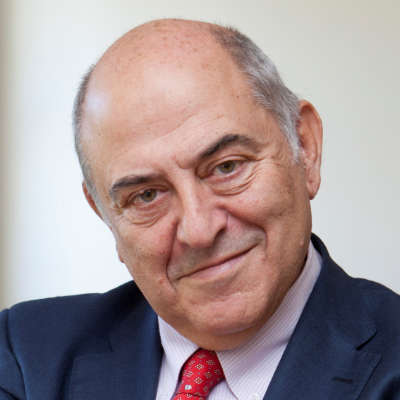VI Employment Congress
Speakers

José Antonio Marina Torres
Spanish philosopher, writer and educationalist. Professor of philosophy on sabbatical from La Cabrera institute in Madrid and Doctor Honoris Causa of the Polytechnic University of Valencia, Doctor Honoris Causa of the University of Huelva, he has earned numerous accolades in the course of his career.
His research work has focused on constructing a theory of intelligence that begins with neurology and ends with ethics.
His interest in practical philosophy has led him to undertake different educational, social and business projects, which are a sample of what he researches and argues in his written output. As a result of this interest, he set up the Movilización Educativa [Educational Mobilisation] movement, and chairs the Fundación Universidad de Padres [Parents' University Foundation], a set of projects that includes the Proyecto Centauro [Centaur Project], among others. This foundation has set up projects like the journal EnergÃa Creadora [Creative Energy] and Universo UP. Marina also heads the Centre for Educational Innovation and Dynamics Studies.
Director of the Antonio Nebrija university chair in Executive Intelligence and Education, which studies how talent is generated. He is a member of the scientific committee of the Alcohol and Society foundation.
In recent years he has undergone a conversion. After exploring philosophy, neurology, linguistics and psychology, he has become convinced that to understand human affairs one must know their history, which ultimately is the practical experience of humanity. Our essential database. "I am, therefore a recent convert to this. No, that's not true. I've been converted to a way of taking advantage of historical experience, history seen from the panopticon. What in more academic terms we would call the "science of the evolution of cultures." I think it can enable us to understand the present and help us to take the right decisions for the future. I also think we should introduce it as a core subject at all levels of education. Finally, I think that it frees us from the superficiality of the networks, from the petulance of the present and from the intoxication of the obvious."
